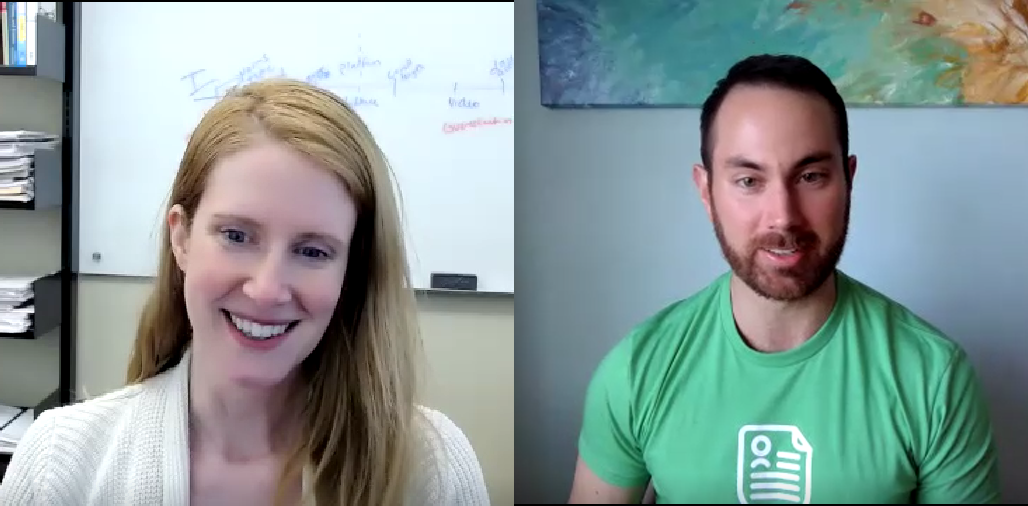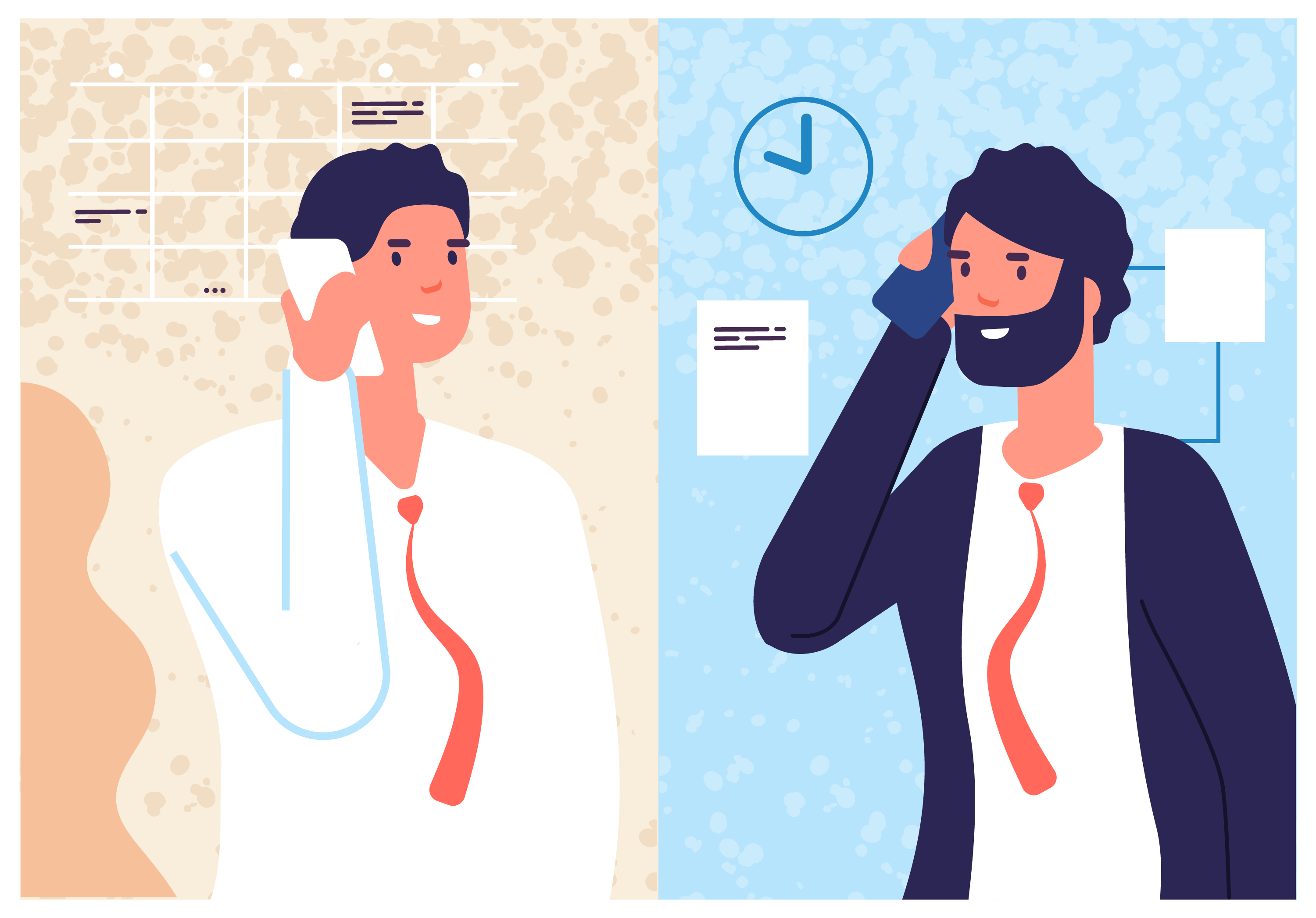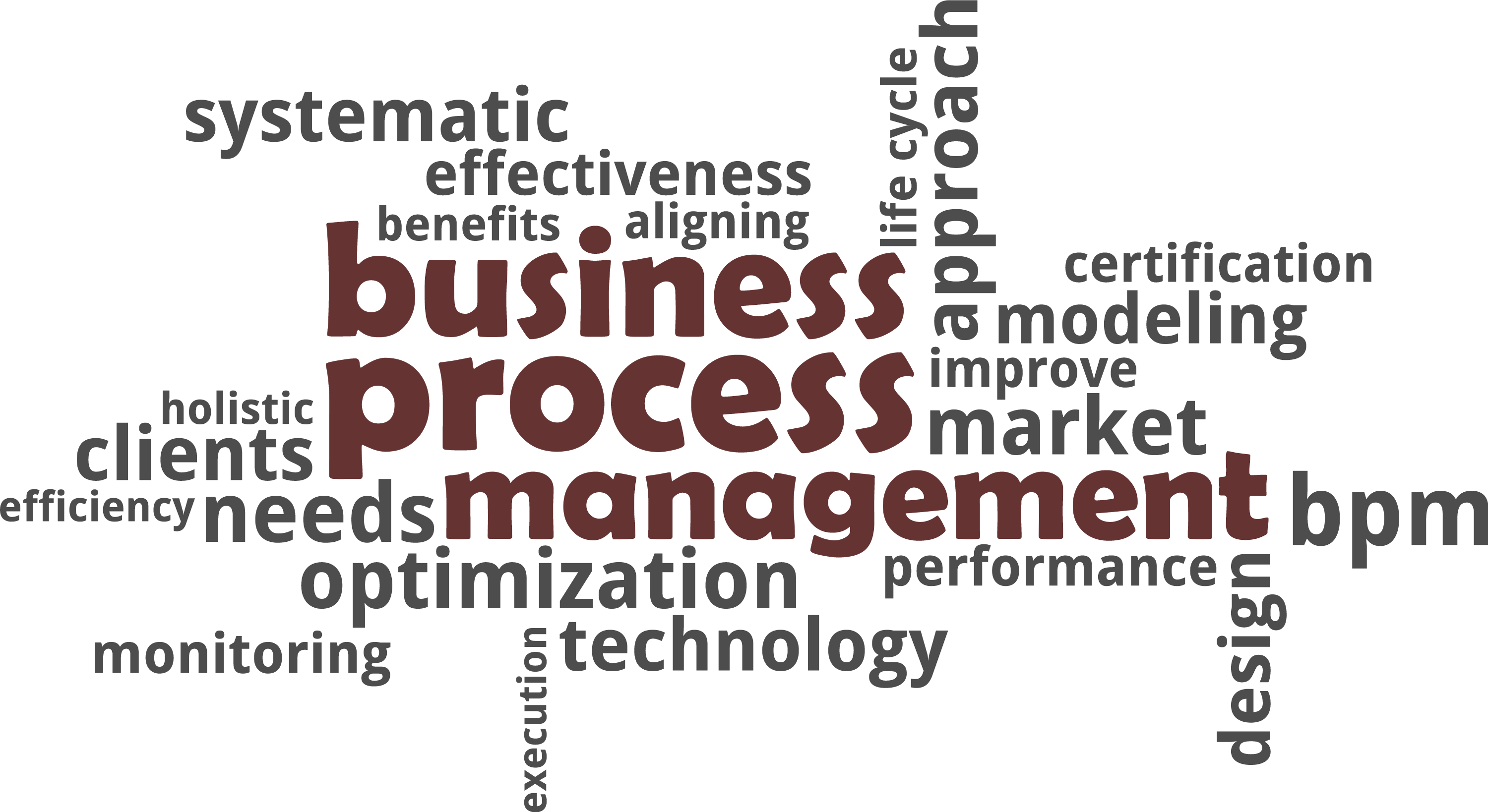How to Think Like a Hiring Manager
Posted on 1 year ago
Your application isn’t about you. Your application is about helping a hiring manager quickly decide to move your application forward while simultaneously deleting one-hundred other resumes.
How can you help the hiring manager? Start by putting yourself in their shoes.
Hiring managers have priorities, incentives, fears, and time-constraints. When they first look at an application, they will take a few seconds to determine whether to hit delete or keep reading. Their initial decision depends upon a few questions, such as:
- Is this candidate looking to solve our problem or wanting us to solve theirs?
- Does this candidate’s history and skillset fit our need?
- Does some information appear to be omitted?
- Is the candidate forthcoming with high-quality references?
- How many of these resume claims would I need to investigate?
- Could advancing this candidate waste my time or backfire?
- Is this the kind of person I’d like to work with?
Most applicants fail to reflect on how quickly and directly their application addresses these concerns. This is the power of applying with empathy.
When you set yourself apart by identifying and solving hiring managers’ problems, you dramatically increase your interview chances. If problem-solving is in your nature, show it.
Posted in Jobs
Reduce racial prejudice with your video resume
Posted on 2 years ago
Do you worry that your ethnicity, country of origin, or name hurt your chances of landing interviews?
The 2004 study, “Are Emily and Greg More Employable than Lakisha and Jamal?” studied how likely resumes with randomly assigned identifiably White and Black-sounding names were to receive callbacks. Black-sounding names received only 50% as many callbacks. Similar research has since shown applicants with Greek, Pakistani, Indian, and Chinese names, or foreign work experience, were 40% less likely to receive callbacks for an interview.
While most large employers now have express diversity goals & incentives, it would be hard not to worry that race or origin may still negatively impact your interview chances. Even worse, you hardly have the option to conceal your race. Handshake reports applicants with a profile picture receive 7x more views than those without, and LinkedIn reports a 14x increase in views with a profile picture. Recruiters are going to know your race.
As a diverse applicant, you can minimize prejudice by intentionally presenting yourself as an individual. Rapid group stereotyping can happen when recruiters are reviewing hundreds of resumes each day. This creates a prime environment for “Type-1 thinking”- Daniel Kahneman’s term for our brains’ fast and bias-prone default state. Seeing each resume as an individual requires sustained, conscious effort from recruiters. Top applicants know to do more than wish for this.
How to show the real you
So what does it mean to present yourself as an individual? It means introducing the real you and helping recruiters escape from the monotony of text-only applications. Including a short (30-60 second) video introduction with your resume nails both targets. Recruiters welcome a reprieve from traditional resumes, and 89% say they would watch a video resume.
Psychologists suggest the best way to reduce prejudice is by contact. Acquaintance lessens prejudice, confirmed by meta-analysis on Intergroup Contact Theory. This effect is called “decategorization.”
If you use a top platform like LinkedIn or Handshake, employers are going to see your picture. Applying with a short video pitch allows them to see you as an individual, not a member of a group. Even better, it gives them the chance to connect with you as a human, which they can’t do with the other resumes.
Making it easy
We make creating your short video pitch easy. After creating your SafeHire profile, just customize the script we provide and read it like a teleprompter. Wherever you apply, link your SafeHire URL with your contact info and mention your video intro in your resume’s summary statement.
Most importantly, show the real you.
Posted in Jobs
How to Create Your Video Resume in 2022
Posted on 2 years ago
So, you’ve heard video resumes are all the rage. Many employers already require applicants to answer questions on video before an interview. Plus, everything eventually moves over to video-based platforms in due time. You may as well be ahead of the curve.
A video resume can help you display strengths that don’t show on a traditional resume, such as your enthusiasm, professionalism, and communication skills.
76% of recruiters say they would watch a video resume**, compared to the mere 6 seconds they spend on the average resume. A video resume earns you additional attention, while allowing you to break the monotony for recruiters and connect as a human.
You are more than your resume. It’s up to you to show them.
When the recruiter sees your enthusiasm, smile, and professionalism, it allows them to imagine you handing a customer, or just being pleasant to work with. Recruiters want to hire someone who will make a good co-worker. Your video pitch allows you to signal that’s you, and there’s strong research backing it up.
The data on video applications
The University of Chicago studied how 30 recruiters from Microsoft, Deloitte, and Goldman Sachs responded to applicants who submitted a verbal pitch vs. a cover letter.
Recruiters thought the applicants with the verbal pitch were 54% more intelligent and were 62% more interested in hiring them*. The twist? The wording of the cover letters and verbal pitches was the same, so that the variable was simply the format the recruiters received the pitch in.
A 54% advantage is a big deal. So I have to ask: Why wouldn’t you include a video pitch with your application?
Watch a clip of my interview with Juliana Schroeder, a researcher on the study, below:
A recruiter's perspective on video pitches
Recruiters constantly endure wasted interviews with unenthusiastic candidates. Employers want to feel like they are your dream employer, not 1 of 200 companies you applied at. Your video pitch is your chance to show you’re passionate about their company and won’t take an interview for granted. They won’t have this assurance from competing applicants.
Recruiters are more likely to interview & hire someone they connect with. Unless you went to the same school, you won't connect with them from your resume alone. But when they hear that why their company matters to you, and that you read and fit their job description, it’s easy to picture you as an ideal co-worker.
Can a video resume replace my traditional resume?
A video pitch can't replace your resume, but it can replace your cover letter. Employers need a traditional resume to compare your employment and education history with other candidates. They're also unlikely to have the attention-span or time to watch a 5-minute video resume.
Instead, give them a 30-45 second video pitch. If you were serious about the company, you were probably planning on writing a cover letter. As you likely know, the goal of a cover letter is to express why you chose their company and that you match their job description. This is what you can replace with an employer-targeted video pitch.
If you're a recruiter who's already read 50 covers today, would you rather read the 51st cover letter or watch a 30-second video pitch?
You guessed right. And the University of Chicago's research shows that your chances of landing the job are about 62% better with a video pitch than the cover letter.
Video application instructions:
What you say in your video pitch matters, but not as much as how you say it. If you try to memorize and recite your pitch word-for-word, showing passion may be difficult. SafeHire provides a bullet-point outline you can easily customize, then use like a teleprompter while recording.
In any case, here’s a list to help you create your video pitch:
Do:
- Set your camera at eye-level. It shouldn't look up or down at your face.
- Keep lighting in front of you, not behind you.
- Dress as you would for a job interview.
- Keep your attention on the camera.
- Show your enthusiasm and smile.
- Practice your pitch at least 3-4 times. Nobody's first recording is their best.
Don't:
- Rush through your pitch.
- Read your outline from the screen. Use your outline as a reference while recording.
- Let your pitch last longer than a minute.
- Have a messy/distracting background.
- Repeat your resume.
- Say something that is likely true of every applicant for the job.
Ways to share your video pitch
mp4 file:
- Your computer will have a Camera or Quicktime Player application. You can use these apps to record your video, then attach the mp4 file with your application. In this case, you'll likely want to remember a few bullet points to cover, rather than memorizing a script.
YouTube/Vimeo:
- Many employers will feel more comfortable opening an HTTPS (secure) webpage than an unknown file. After creating an account, upload your mp4 file and share your video's URL link with employers on your resume.
- CAUTION: Be certain that your profile isn't linked to other videos that you wouldn't want employers to see.
SafeHire:
- If memorizing a script or free-styling isn’t for you, SafeHire is your best bet. We provide a customizable bullet-point outline, and allow you to use it like a teleprompter. Your SafeHire profile also allows you to gather & share validated employer/professor testimonials, soft skill assessment results, and more.
Employers don't receive video applications often. When they do, they notice.
You don't have to be just another resume.
* The Sound of Intellect Research
** LinkedIn and Microsoft Skills Commitment
Posted in Jobs
Watch Our Interview on How to Best Apply With Your Voice
Posted on 2 years ago
Below is our interview with Juliana Schroeder, a behavioral scientist and researcher at the University of California at Berkeley. Juliana's research has examined how recruiters perceive candidates who apply with verbal vs. textual applications. This research found that recruiters perceive candidates who apply with a verbal application to be 40% more likable and worthy of hiring, even if the words are the same as an identical candidate's text-based submission.
Posted in Jobs
Your Voice Beats Your Resume
Posted on 2 years ago
The days of submitting a job application in-person are over, and probably for the best. Jobseekers today can apply for more jobs in less time by submitting their resume around online. This page of text is meant to summarize all an employer should need to know about you before determining whether you’re worth interviewing. This method is so commonplace that its efficacy goes unquestioned by the average jobseeker. Research has shown following the crowd when applying will lead you into making a suboptimal impression.
Your voice is the key to an outstanding first impression, according to research by the University of Chicago’s Nicholas Epley and Juliana Schroeder. They asked recruiters to rate candidates’ qualifications from both written and spoken submissions. The method of testing utilized identical words in written and spoken submissions from different candidates. Their conclusions were dramatic.
Recruiters found candidates with oral submissions to be more thoughtful, intelligent, and rational than candidates with identical written submissions. This is contrary to the understanding most people have of their own impression when communicating. If you’ve ever heard your voice played back, you understand the nearly universal discomfort with one’s own voice.
However, this research shows your voice is the most effective form of communicating your intelligence and humanity. This is likely because we have an easier time attributing mental processing power to verbal statements than textual statements. Verbal statements can also convey conviction and happiness, while textual statements are easy to misunderstand and fail to deliver emotion.
We’ve all heard before that it doesn’t matter so much what you say, as how you say it. It appears to be so.
The takeaway for jobseekers is there is much to gain by applying with more than a resume. Employers will view you as more thoughtful, intelligent, and rational if you include a verbal message with your application. SafeHire enables you to apply anywhere with a personal video introduction, and even video testimonials from past employers/professors. So why not start applying better today?
Posted in Jobs
Gig Work Belongs on Your Resume
Posted on 2 years ago
Gig-work deserves proud placement on resumes.
I’d argue the gig arena is a customer service meritocracy. For example, if a ride-share driver’s ratings drop below 4.6, they risk deactivation. Poor service also leads to unsustainably poor tips, allowing the strongest to survive.
There are no organizational “free-riders” among workers dependent upon tips and reviews. Gig-workers must be proactive when no one is expecting them to clock-in and value urgency during their shifts. Gig-work is not a labor of last resort; for many skilled workers, it is a transitional income choice while waiting for a job suited to their expertise.
Employers want evidence of skills, not just claims. Your hundreds of reviews allow you to out-compete applicants who merely claim customer service skills on their resume. I don’t know about you, but when if I’m choosing a restaurant, I prefer to see hundreds of 5-star reviews over a website claiming good customer service. Hiring managers feel the same way.
On your free SafeHire profile, use your Portfolio to upload evidence of your gig-work ratings, along with other achievements such as past performance reviews and awards. Just link your SafeHire URL at the top of your resume, in the contact info section.
Posted in Jobs
Are you selling yourself to employers?
Posted on 2 years ago
An unfortunate reality about the hiring process: Selling is non-optional. Wouldn’t it be better if only merit mattered? Sure, but hiring managers are only human. They can’t help but respond to good marketing and powerful anecdotes (just like you and me).
Establishing your competence is necessary, but entirely insufficient. Your dream job requires out-competing other candidates to win over the hiring manager. If equipped with nothing but self-assurance in your own competence, you’ll find yourself outmaneuvered by competitors who tell beautifully rehearsed stories of accomplishment and service. Hiring managers must buy what you’re selling.
Fortunately, landing the job isn’t “cold” sales. Access to the job description is your opportunity to understand the employer’s needs and present yourself as the perfect solution. This is where many applicants will get it wrong. Selling yourself is about understanding the needs and wants of the buyer (the hiring manager). Buyer-focused selling will give you an edge over candidates who prefer self-focused telling.
To add credibility to your claims, consider using testimonies from compelling sources, such as past supervisors and educators. Buyers prefer customer reviews over a salesperson’s claims. Hiring managers are the same way, but they don’t have the time to call and verify all (or any) applicants’ past employers. Providing letters of recommendation upfront can help you stand out as the most credible candidate.
As buyers, we expect credible sellers to provide evidence, not just claims. With resumes as likely to contain embellishments as dating profiles, hiring managers crave evidence. You can stand out and problem-solve by sharing evidence of your achievements, such as strong performance reviews, awards, and credentials.
Selling yourself begins and ends with empathy. Match yourself to the employer’s needs, as expressed in the job description. Then, put yourself in the shoes of the hiring manager by considering how you can add certainty to and reduce hassle from their life.
Posted in Jobs
The Reference Check Problem (and Solution)
Posted on 2 years ago
While reference checks are the most common assessment technique for executive level hires, many employers are cutting back on reference checks for mid & low-level positions. The time-intensive nature of reference checks doesn’t mesh well with positions that receive more applications, experience higher turnover, and require faster hiring.
Time-consumption isn’t the only problem though. Everyone can get a positive reference from someone, and hiring managers know applicants won’t list references who could say something negative. The question isn’t whether someone can get a positive reference, but rather whom they can get a positive reference from. References from friends, family, or unverifiable sources are a waste of time, but references from past employers speak volumes. Who better to speak to the applicant’s competency, work ethic, and character?
Some companies save time by outsourcing their reference checks to third-parties. The tradeoff is third-parties make it easy for applicants to provide themselves references by creating new email addresses and using a Starbucks IP address or VPN. This can hurt more than it helps.
In sum, employers face two key problems: Time consumption and low-quality sources. At the same time, applicants and reference-providers have their own problems.
High quality references are normally busy and can’t be expected to provide multiple thoughtful references for the same person. This problem is further exaggerated when automated reference checks are used earlier in the hiring process.
Having reference checks at the end makes sense for minimizing time-sink and respecting references’ time, but it also means top performing applicants will slip through the cracks. The best evidence of a worker’s future work ethic and character is the experience of the past employer, and it’s a shame for applicants to have to first make it through 3 interviews before those experiences matter. The best applicants are eager to share the experiences of their past employers.
These are the problems SafeHire aims to resolve. SafeHire only accepts references from validated professional email addresses, which are published along with their reference. Reference-providers must explicitly affirm that they were the jobseeker’s workplace superior, HR officer, or professor. When top applicants use SafeHire, employers save time with upfront, validated references from past employers and reference-providers can provide just one lasting, quality reference. Most importantly, applicants who are eager to share the experiences of their past employers can stand out by linking their SafeHire profile on their resume.
Posted in Jobs
What small resume errors say about you
Posted on 2 years ago
Your resume is your opportunity to sell yourself in the briefest format possible. Your entire history of work ethic, sacrifices, and contributions are represented on a single page. If you’re a student or graduate, all your sleepless nights studying and hard-sought achievements in college will boil down to a single page. Landing the first interview comes down to how well your resume represents your credibility, experience, attention to detail, and dedication.
So what does it say about you if there are mistakes?
Your resume is perhaps the most important document you will ever draft, and you bear all the risk and all the reward for its presentation. If it contains mistakes, what should employers conclude about your performance when you no longer bear all the risk and reward from your actions, but they do? The most rational conclusion is that your mistakes would worsen if the liability were transferred to the employer.
With an average of 250 applicants per job opening, employers need to weed out applicants quickly. One of the easiest ways to start is by deleting resumes with mistakes because there are plenty without mistakes.
Your resume may be perfectly legible, even with a few grammatical or punctual mistakes, but that’s not the point. The point is that any applicant who can’t be trusted to get things right when they bear all the liability certainly can’t be trusted to get things right when their employer bears all the liability.
Posted in Jobs
Action verbs won't save your resume
Posted on 3 years ago
The perceived importance of action verbs and power words is a good indicator that many jobseekers are forgetting about what (and who) matters most.
In past blogs, I’ve coined the term “apply with empathy” to encourage jobseekers to consider the hiring manager’s priorities, incentives, fears, and time constraints. Applying with empathy isn’t just about being a considerate person; it’s about improving the chances that your resume accomplishes its goal.
From this perspective, you should first make it easy for the hiring manager to process your resume. Complex or uncommon words will often lead to your resume getting skipped or scanned, while clear, simple language makes it easier to read and process your resume. If you wish to increase the probability of hiring managers reading your resume, then complex and uncommon words are doing you a disservice.
Even if a hiring manager trudges through a resume packed with complex words, what emotion will they feel? They are more likely to feel frustration than admiration. A clear resume is much preferable to a complex resume.
Hiring managers grant limited interview slots to applicants who match the job description and provide confidence in their ability to perform. The obvious use of Thesaurus.com achieves neither of these objectives. The purpose of a Thesaurus should be to find the most precise words for your sentences, not the fanciest.
Applying with empathy means applying with the fears and time constraints of hiring managers in mind. Instead of trying to get your resume noticed with your word choice, why not get noticed by becoming the most credible candidate? By linking your custom SafeHire URL at the top of your resume, you can stand out as the most credible candidate. Use your SafeHire profile to gather & publish validated testimonials from your past employers, HR officers, & educators.
Hiring managers prefer interviewing credible candidates and hate spending their time calling references they can’t verify. They will love you for applying with validated references upfront.
Posted in Jobs









